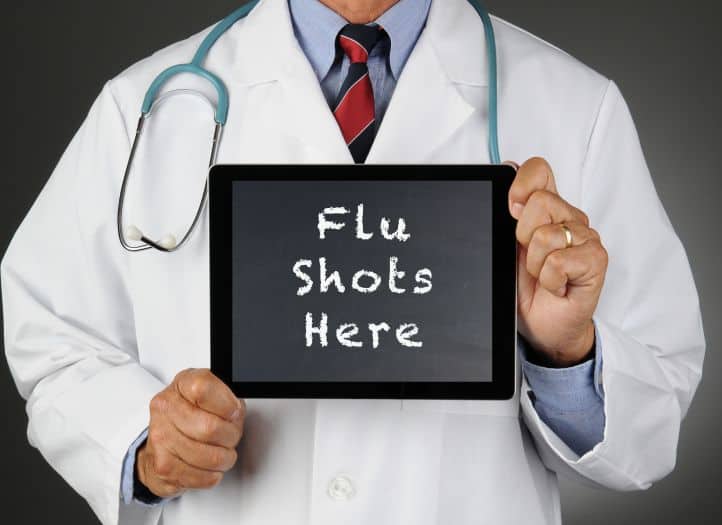
The CDC recommends yearly immunization for influenza for all persons 6 months of age and older. Unfortunately, not everyone chooses to be immunized. As a result, people needlessly get ill, and in some cases, die. The fact that many people don’t get immunized makes it even more important that EMTs do. Not only are you at high risk of coming into contact with the flu and becoming ill, you are also at high risk of spreading it to vulnerable patients in the community.
There are some misconceptions about the risks associated with getting immunized. The risk is really minimal if you do not have an egg allergy. Rarely, and more likely in children who have not had prior exposure, the flu shot can result in a fever, malaise, and myalgias (muscle pain). Adults generally don’t get side effects except for a mildly sore shoulder unless they have allergies. The risk of developing Guillian Barre Syndrome (a serious neurological disorder) is about 1/1,000,000, and even at that it is not proven that the flu shot causes it.
I have seen firsthand what a serious illness influenza can be. The symptoms are fever, myalgias, malaise, headache, congestion, and cough. It is more than just a common cold. If you get it, best case scenario, you will be totally miserable and only miss a few days of work; worst case, you die. Especially if you are over 65 or have comorbid medical problems.
Unless you have a history of allergy to the flu immunization, there is really no excuse. And if you are between the ages of 2 and 49, it can be given by nasal mist so you don’t even have to get a shot!

